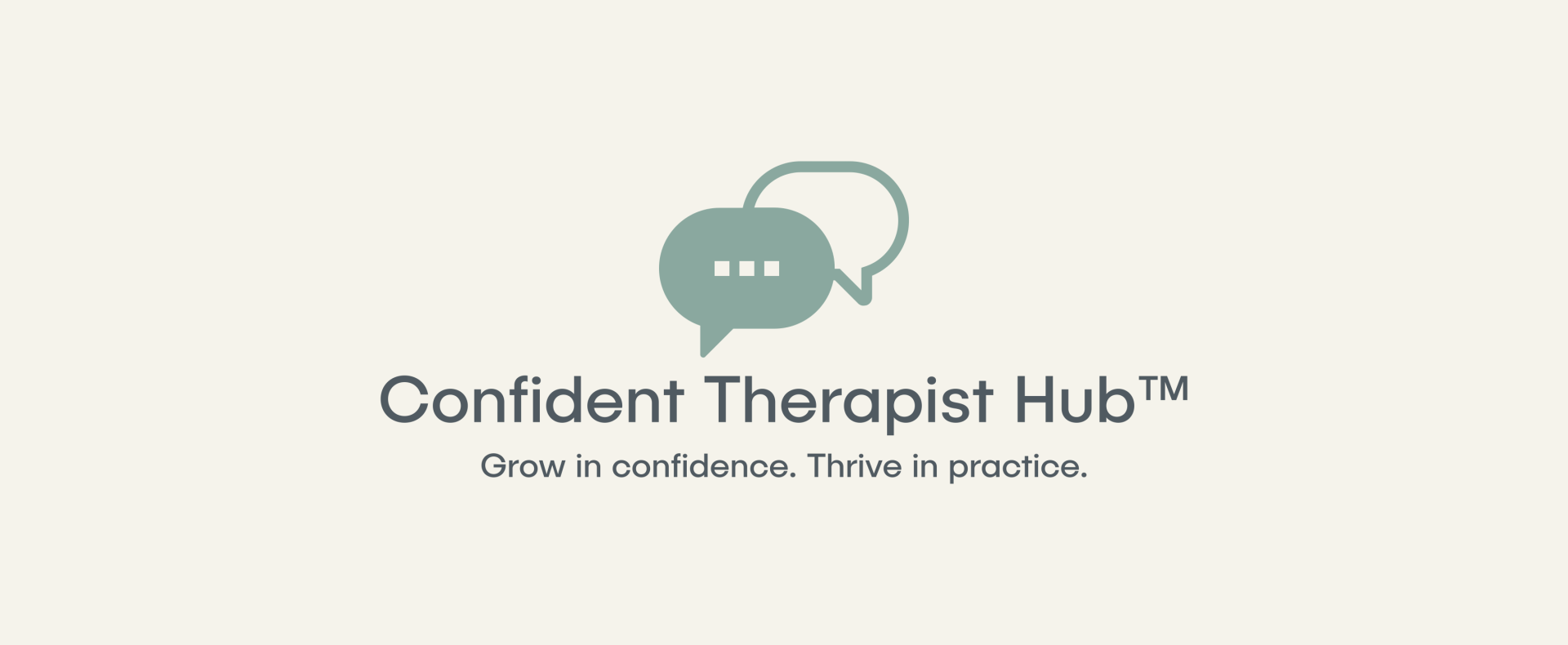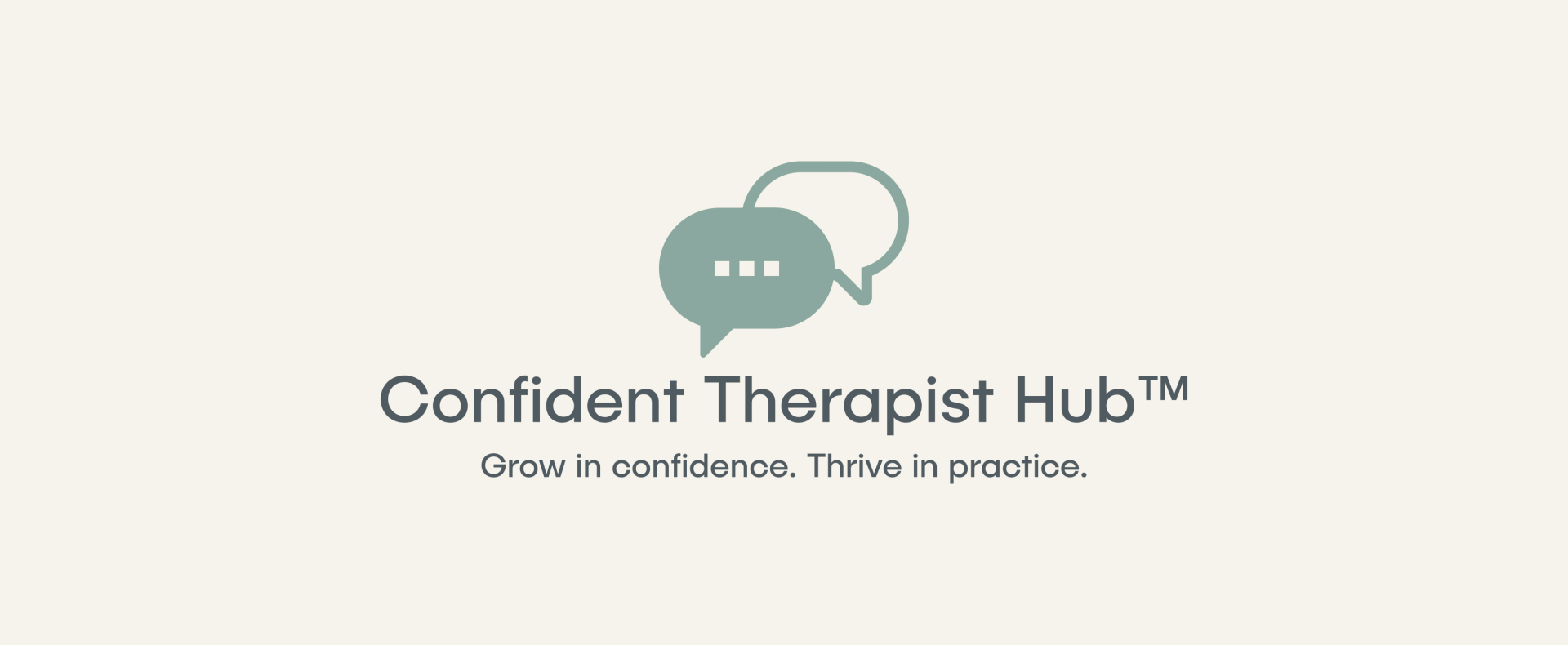What Confidence Really Looks Like in Therapy - It’s Not What You Think
Aug 2
/
Joel Bild
When you picture a “confident therapist,” what comes to mind?
Maybe someone articulate and self-assured, speaking effortlessly in supervision, or holding silence without flinching. Someone who never second-guesses their interventions, right?
The reality is…
that image is a bit of a myth. True confidence in therapy isn’t loud. It doesn’t look like always knowing what to say, or having every answer ready.
More often, it’s quiet...steady...grounded. It’s the kind of confidence that whispers: “I can sit in this uncertainty.” “I don’t have to fix this right now.” “I trust that I’m enough, even when it’s messy.”
For many of us, confidence has been subtly tied to performance.
We learned to measure it in qualifications, positive feedback, or outcomes we could prove. But the therapeutic space doesn’t operate like that - and neither does authentic confidence.
In my experience, real therapist confidence grows when we stop striving to be confident and start getting curious about what stands in its way.
Here’s what that looks like in practice 👇
1. Confidence is knowing your edges.
It’s recognising your limits, e.g. when to refer on, when to pause, when you’re tired, and doing so without guilt or shame. That’s not weakness; that’s wisdom.
2. Confidence is staying regulated.
It’s being aware of your own emotional state in the room and having the tools to ground yourself when things get activating. You can’t fake calm; your nervous system sets the tone for the session.
3. Confidence is authenticity.
It’s bringing your full humanity into the work - not hiding behind jargon or theory, but being genuinely present. Clients don’t need a flawless expert. They need a real person who can hold space for truth.
The therapists I admire most aren’t necessarily the most “impressive” on paper. They’re the ones who show up fully human - compassionate, boundaried, and humble enough to keep learning.
That’s why the Confident Therapist Hub exists: to support that kind of confidence - the grounded, embodied kind that grows from self-awareness, reflection, and care for yourself as much as for your clients. Because when you’re resourced and confident in who you are as a therapist, everything else - your technique, your relationships, your practice - naturally follows.
Maybe someone articulate and self-assured, speaking effortlessly in supervision, or holding silence without flinching. Someone who never second-guesses their interventions, right?
The reality is…
that image is a bit of a myth. True confidence in therapy isn’t loud. It doesn’t look like always knowing what to say, or having every answer ready.
More often, it’s quiet...steady...grounded. It’s the kind of confidence that whispers: “I can sit in this uncertainty.” “I don’t have to fix this right now.” “I trust that I’m enough, even when it’s messy.”
For many of us, confidence has been subtly tied to performance.
We learned to measure it in qualifications, positive feedback, or outcomes we could prove. But the therapeutic space doesn’t operate like that - and neither does authentic confidence.
In my experience, real therapist confidence grows when we stop striving to be confident and start getting curious about what stands in its way.
Here’s what that looks like in practice 👇
1. Confidence is knowing your edges.
It’s recognising your limits, e.g. when to refer on, when to pause, when you’re tired, and doing so without guilt or shame. That’s not weakness; that’s wisdom.
2. Confidence is staying regulated.
It’s being aware of your own emotional state in the room and having the tools to ground yourself when things get activating. You can’t fake calm; your nervous system sets the tone for the session.
3. Confidence is authenticity.
It’s bringing your full humanity into the work - not hiding behind jargon or theory, but being genuinely present. Clients don’t need a flawless expert. They need a real person who can hold space for truth.
The therapists I admire most aren’t necessarily the most “impressive” on paper. They’re the ones who show up fully human - compassionate, boundaried, and humble enough to keep learning.
That’s why the Confident Therapist Hub exists: to support that kind of confidence - the grounded, embodied kind that grows from self-awareness, reflection, and care for yourself as much as for your clients. Because when you’re resourced and confident in who you are as a therapist, everything else - your technique, your relationships, your practice - naturally follows.
This article was developed with the assistance of AI writing tools and carefully reviewed by the Confident Therapist Hub team in line with our AI Use Policy.



